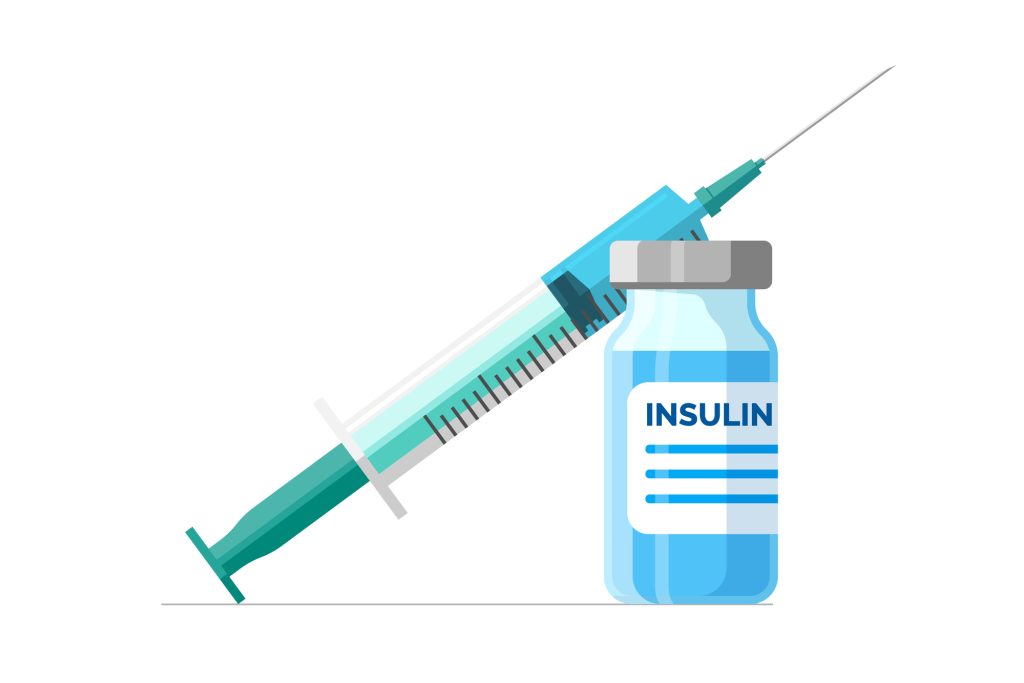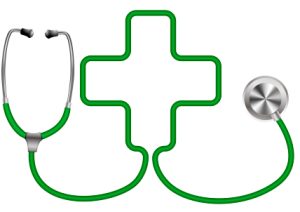 Written by Owen Clarke, PharmD,
Written by Owen Clarke, PharmD,
Sliding scale insulin is a method of therapy in which the insulin dose changes depending on the patient’s blood glucose at the time of testing. If numbers are high, more medicine is given, if they are low or within a normal range, little or none is injected.
This approach is especially familiar in the hospital. Physicians often use it for patients with diabetes who are temporarily admitted for another illness, medicine or for surgery. It looks simple: a nurse checks the glucose, then follows the chart to decide how much insulin to give. The appeal lies in its clarity, but sliding scale insulin therapy is reactive. Instead of preventing problems, it corrects them after they appear, which can lead to unpredictable results.
Historical Background
The sliding scale insulin grew popular in medicine during the mid-20th century. At that time, physicians had fewer tools for monitoring, and long-acting insulins were harder to manage without good feedback. Linking a single blood sugar reading directly to an injection looked like a practical solution.
In hospitals, the method became routine. Patients with diabetes admitted with infections, trauma, or surgery often had “sliding scale insuin” written into their orders. Regular dosage was usually chosen because its action profile was predictable enough for ward routines. Nurses could apply medicine quickly without complex calculations, and pharmacy staff could support it with standardized instructions.
Many physicians and medical students at university hospitals learned the method first. It was easy to teach: check the glucose, find the number on the chart, and give the corresponding dose. Research eventually showed that the results were inconsistent, often leading to spikes of hyperglycemia and sudden drops afterward, but old habits remained strong.
How It Works in Practice: Blood Glucose Levels
In everyday hospital care, the sliding scale insulin is built around a chart that pairs blood glucose levels with the very medicine. This hospital sliding scale insulin protocol is usually part of the patient’s chart and guides both nursing and pharmacy staff.
A Typical Chart for Insulin Regimen
A sliding scale insulin chart might read:
- 150–200 mg/dL — 2 units of regular insulin;
- 201–250 mg/dL — 4 insulin units;
- 251–300 mg/dL — 6 insulin units;
- Above 300 mg/dL — call doctor and consider a higher dose.
Timing of Insulin Doses
The timing usually revolves around meals and bedtime. Before a patient is about to have meal, the nurse checks glucose and injects according to the chart. At bedtime, another test is done, and insulin may be given if the level is high. In perioperative care, when eating patterns are irregular and stress hormones push glucose higher, sliding scale is also used because it looks flexible and easy to adjust.
Types of Insulin Used
Traditionally, regular insulin is the most common choice, but many hospitals also rely on rapid-acting medicines. Humalog insulin, for example, is sometimes substituted because of its faster onset.
Who Is Involved
Behind the routine is a team effort:
- Nursing staff handle the measurements and injections.
- Pharmacy helps ensure that medicine doses and supplies are consistent.
- Healthcare providers oversee the orders and make adjustments if glucose swings become too large.
Although this method is straightforward, it has clear limits. Patients with diabetes may face repeated cycles of highs and lows because insulin is given only after problems appear. For this reason, more hospitals are moving toward structured schedules that combine basal coverage and mealtime insulin, leaving sliding scale insulin behind as an older, reactive tool.
Clinical Practice Where SSI Orders Are Used
Sliding scale insulin is most often applied to hospitalized patients with diabetes who need short-term control of their glucose. Doctors use it in situations where the need for insulin is uncertain or rapidly changing. The method looks convenient because nurses can test and give insulin without planning meals or predicting daily needs. In reality, it often leaves patients swinging between hyperglycemia and unexpected lows.
Medical Wards
Patients admitted with infections or acute illnesses often experience stress-induced hyperglycemia, even if they do not have diabetes. Sliding scale insulin may be used here as a temporary tool to control fluctuating glucose levels during hospitalization.
Surgery and Perioperative Care
During surgery and the perioperative period, factors like anesthesia, fasting, and post-surgical pain can disrupt normal glucose regulation. Sliding scale insulin is often chosen for quick, short-term corrections when daily requirements are hard to predict.
Intensive Care
In intensive care units, structured insulin regimens are generally preferred, but sliding scale protocols are sometimes still used. They provide a straightforward way to address sudden spikes in glucose among critically ill patients with diabetes.
Total Parenteral Nutrition
When patients cannot eat and receive glucose directly through intravenous nutrition, their blood sugar can rise unpredictably. Sliding scale insulin is occasionally applied in this setting to manage those sharp fluctuations.
Limitations of Sliding Scale Therapy
The attraction of sliding scale insulin is its simplicity, but that simplicity hides several problems. The most important is that it acts after the fact. Glucose rises, insulin is given, and then another rise happens again. This cycle continues, with no true prevention.
Reactive, Not Preventive
The central problem is that insulin comes after high numbers, not before. Patients with diabetes may spend hours with elevated blood glucose before correction arrives. This results in poor glycemic control settings and delays recovery.
Risks for Patients With Diabetes Mellitus
- Hyperglycemia: repeated highs are common because no basal coverage is present.
- Hypoglycemia: if the dose is too strong, sudden drops can occur, especially if meals are delayed.
- Longer hospital stays: studies show that cycles of poor control can lead to issues and prolong hospitalization.
Evidence and Perception
Research has consistently shown that sliding scale insulin therapy is an antiquated approach compared with more proactive schedules. Many guidelines now recommend stopping SSI orders whenever possible. Still, habit and familiarity keep it alive in daily practice. Clinicians may believe it is safer because of its simplicity, even though evidence suggests otherwise.
What It Feels Like for Patients
For many people with diabetes, the hospital routine of frequent insulin injections can feel exhausting. Patients often describe the discomfort of repeated needles, especially when checks are done before meals and at night. The ups and downs in blood glucose create another challenge: long stretches of tiredness, constant thirst, or sudden drops that bring shaking and confusion.
This cycle can leave hospitalized patients worried and unsure if their condition is under control. Beyond the physical side, there is also an emotional weight — the sense that treatment is happening to them, not with them. Instead of feeling stable, they may experience fear of the next hyperglycemia spike or the next sharp fall.
Everyday Life: Home vs. Hospital
Sliding scale insulin still appears because it looks simple for staff. Nurses can quickly give regular insulin when numbers are high, and instructions are easy to follow. Yet research on glycemic control in hospitalized patients shows that this method is not the most effective. More modern approaches use basal insulin and mealtime dosing, offering steadier protection. Most doctors rarely recommend sliding scale insulin on its own, since daily life requires flexibility with diet, exercise, and long-term balance.
A patient can often recognize sliding scale insulin if the doctor gives a chart that links a glucose reading to a dose, without mention of a set background schedule. If this happens, it is worth asking questions. In many university hospitals, clinicians now teach alternatives that prevent problems instead of chasing them afterward. For people living with diabetes, knowing the difference can help them feel more in control of their treatment and recovery.
Alternatives and Modern Approaches
As clinical practice advanced, healthcare facilities began to adopt more proactive methods of inpatient management. These newer factors aim to smooth out fluctuations rather than chase them afterward.
Basal–Bolus Regimens
The most widely accepted alternative is a scheduled insulin regimen combined with mealtime insulin. Basal insulin covers background needs throughout the day, while mealtime insulin handles spikes after food. This approach mirrors natural insulin levels and provides steadier control.
Structured Protocols
- Scheduled basal coverage ensures that blood glucose level does not drift upward during fasting or overnight.
- Mealtime dosing keeps post-meal spikes in check.
- Correction doses can still be added, but they are layered on top of a stable foundation rather than replacing it.
Practical Shifts in Hospitals
Many hospitals now include clear instructions to stop sliding scale insulin in favor of basal–bolus regimens. Intensive care units, surgical teams, and general wards increasingly follow this practice. It requires more planning and staff education, but it lresults in better glycemic control.
Modern medicine also combines regular insulin therapy with oral agents like metformin for those who can eat, which further improves outcomes. The evidence points to consistent benefit when compared to the reactive sliding scale.
Clinical Perspectives: Glycemic Control in Hospitalized Patients
Sliding scale insulin has been a routine part of hospital medicine for decades, but perspectives on its value have shifted. Many physicians acknowledge that the method is easy to apply yet does not deliver the stability patients with diabetes need. Nursing staff also raise concerns: constant checks, frequent injections, and no real sense of overall control. Pharmacy teams highlight another factor — total insulin exposure is unclear because doses are scattered across the day.
Why It Still Gets Used
Despite the criticism, sliding scale insulin remains visible in inpatient management. The reasons are often practical:
- Familiarity – most physicians, especially those trained years ago, learned it as the default hospital regimen.
- Simplicity – medical students and junior staff find the chart easy to follow.
- Flexibility – if a patient does not eat, the nurse simply skips the injection.
The Call to “Stop Sliding”
Over the last two decades, university guidelines and expert groups have encouraged clinicians to stop sliding medicine. They emphasize that poor glycemic control leads to higher risks of hyperglycemia, hypoglycemia, and complications. Evidence from research suggests that proactive regimens, such as basal-bolus with scheduled basal coverage, are safer and more effective. Yet the shift requires retraining physicians and rethinking hospital routines, which does not happen overnight.
Summary for Practice
Sliding scale insulin therapy is part of insulin history, but it no longer represents best practice. It was once considered a safe, moderate approach to inpatient diabetes management, especially around surgery and in intensive care.
For most patients, modern regimens offer a clear benefit. Structured medicine therapy with basal insulin dosage and scheduled coverage provides steadier control, reduces the risk of complications, and improves outcomes. Physicians, nursing staff, and pharmacy teams all play a role in moving away from reactive sliding scale insulin toward proactive management.
Bio of the Author
Owen Clarke, PharmD — is a dedicated pharmacist with a degree from the University of Alberta’s Faculty of Pharmacy & Pharmaceutical Sciences. With five years of experience, he began his career as a part-time assistant pharmacist before advancing to a full-time hospital role, where he prepares and customizes medication plans for conditions like diabetes and thyroid disease.
References:
- Clement S, Braithwaite SS, Magee MF, et al. Management of diabetes and hyperglycemia in hospitals. Diabetes Care. 2004; 27:553–591.
- Van den Berghe G, Wouters P, Weekers F, et al. Intensive insulin therapy in critically ill patients. N Engl J Med. 2001; 345(19):1359-1367.
- Dhatariya K, Corsino L, Umpierrez GE. Management of diabetes and hyperglycemia in hospitalized patients. In: Feingold KR, Anawalt B, Boyce A. et al. eds. Endotext. MDText.com, Inc; 2000.
- Bucciferro E, Dhatariya KK, Franklin V, et al. Use of a standardized protocol to decrease medication errors and adverse events related to sliding scale insulin. Qual Saf Health Care. 2006;15(2):141-144.
Please also review AIHCP’s Certification programs and see if it meets your academic and professional goals. These programs are online and independent study and open to qualified professionals seeking a four year certification




